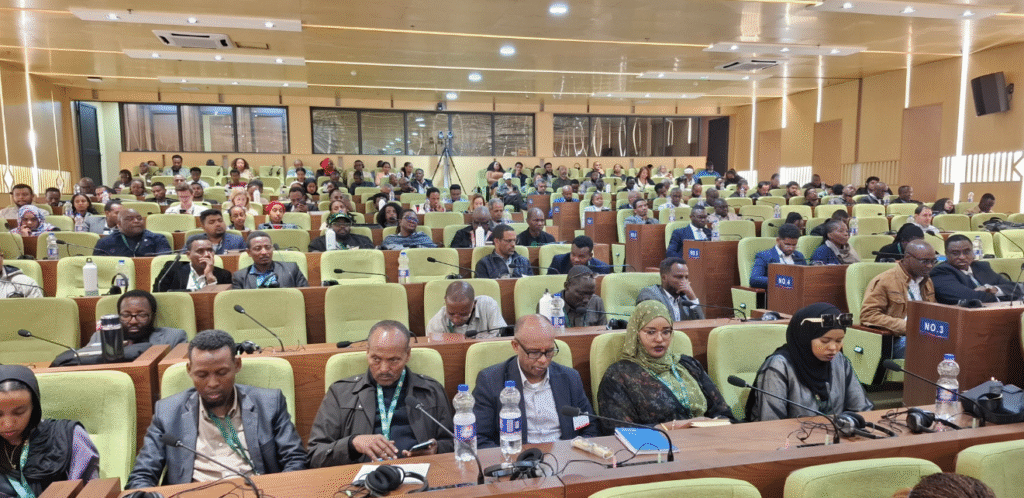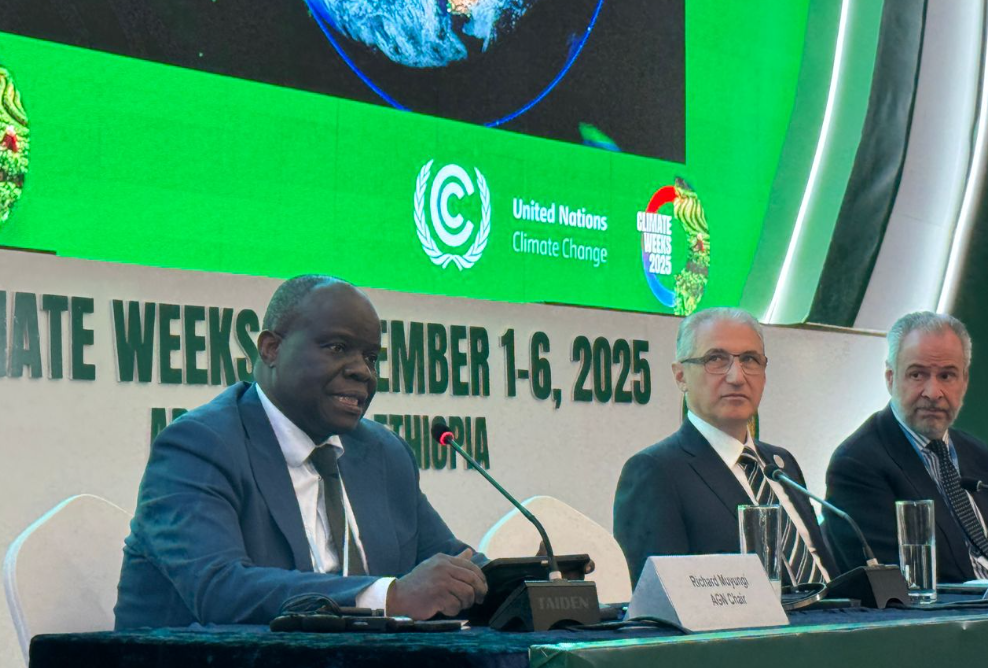By Jenifer Gilla
Addis Ababa, Ethiopia. Africa is demanding its fair share of the proposed $1.3 trillion New Collective Quantified Goal (NCQG) on climate finance, arguing that only a shift from pledges to delivery will ensure the continent’s survival and development in the face of climate change.
The African Group of Negotiators (AGN) insists that the Baku to Belém Roadmap must guarantee climate finance that is accessible, predictable, and aligned with Africa’s priorities.
According to AGN Chair Dr Richard Muyungi, Africa’s just share amounts to $497 billion annually yet less than 10 percent of global climate finance currently reaches the continent, and only two percent flows directly to local actors.
Speaking at a side event on Africa’s expectations during the Africa Climate Summit in Addis Ababa yesterday, Dr Muyungi emphasized that COP30 must reaffirm historical obligations under the UNFCCC and Paris Agreement, which require developed countries to provide adequate and concessional finance to developing nations.
He called for simplified accreditation systems and direct access windows for subnational authorities, indigenous communities, and women-led institutions.
He stressed that public finance, in the form of grants and concessional loans, must remain the backbone of climate finance, warning against excessive reliance on blended finance that risks trapping African countries in debt.
On domestic readiness, Dr Muyungi underlined the need for technical and financial support to strengthen institutions, build project pipelines, and improve transparency.
He proposed creating Voluntary Climate Investment Platforms that align with national climate strategies and link directly to international funds to accelerate access.

“The Baku to Belém Roadmap must not become just another process. Promises made must become promises kept,” Dr Muyungi said, urging the COP30 Presidency to convene a high-level pre-COP finance dialogue with African leaders to endorse the roadmap’s outputs.
He also called on the African Union Commission, the African Ministers of Environment (AMCEN), and Heads of State to continue championing Africa’s demands at global forums, including the UN General Assembly and the G20.
COP30 President Ana Toni echoed the urgency, saying the $1.3 trillion target requires mobilization of resources at speed and scale.
“We are absolutely prepared to go from donors to contributors,” she said, stressing that developed countries’ public finance remains vital but must be complemented by flows from the private sector, multilateral development banks, and other sources.
Toni clarified that the $1.3 trillion roadmap must not be confused with the $300 billion finance commitment agreed earlier in Bonn, which carries its own monitoring process under the UNFCCC.
She noted that COP29 and COP30 presidencies would consult widely and present a report based on parties’ submissions, building on initiatives such as the Nairobi Declaration and the Bridgetown Initiative.
COP29 President Mukhtar Babayev reinforced this point, noting that the $300 billion decision was designed to complementnot replacethe $1.3 trillion finance goal.
“If we can deliver on this goal, it will be a historic contribution to the aims of the Paris Agreement,” he said, stressing that inclusivity and transparency are central to the roadmap, which he described as “non-negotiated but entrusted” to the presidencies of COP29 and COP30.
He praised African countries and civil society for their strong engagement, highlighting that inputs from stakeholders such as the African Development Bank would be critical to shaping outcomes.
“This roadmap will only be successful if it reflects the needs, realities, and aspirations of developing nations,” Babayev added.
Germany’s State Secretary for the Environment, Climate Action and Nature Conservation, Jochen Flasbarth, stressed that the Paris Agreement’s principle of mutual responsibility must guide financial flows to ensure capital benefits Africa instead of exploiting it.
Meanwhile, Memory Kachambwa, Executive Director of the African feminist network FEMNET, raised concerns that women remain systematically excluded from the climate finance system.
She noted that less than 1 percent of global development assistance is directed toward gender equality, and less than 3 percent of climate finance has gender equality as its main goal.
“This means women and young people on the frontlines of the climate crisis are sidelined,” Kachambwa said.


